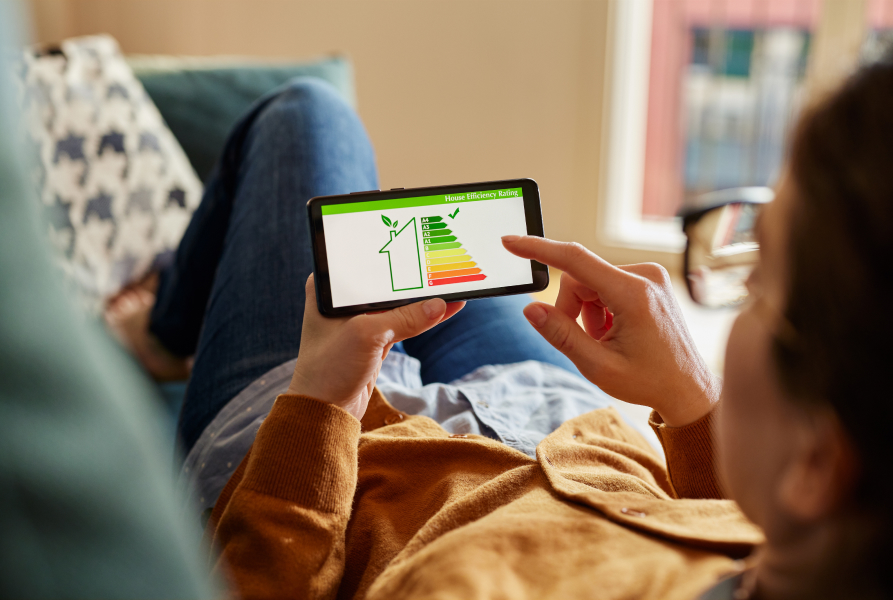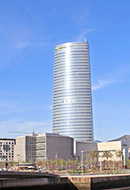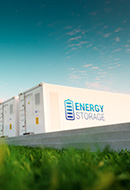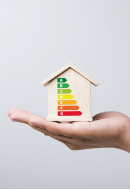Energy efficiency
What is energy efficiency and how can we achieve it in our daily life?
Saving energy has become particularly important in recent years to protect the environment and keep bills down, and is even more essential in times of shortage or instability. Here are the keys to contributing to energy efficiency at home.

Energy efficiency is no longer an option but a necessity. Saving energy to ensure stability of supply is a goal that needs everyone's involvement, whether at home, in our workplaces, means of transport, holiday destinations or leisure places and habits. But what does energy efficiency entail?
Energy efficiency: meaning and implications
The concept of energy efficiency refers to the set of actions that optimise the relationship between the amount of energy consumed and the final products or services obtained. In other words, it aims to make the best possible use of energy so as not to use it unnecessarily and to save as much as possible without losing quality of life or production.
As well as helping to secure supply, this type of saving helps to reduce energy bills by using only the resources needed and contributes to the sustainability of the planet by reducing the carbon footprint.
This can be achieved through various technological measures, for example, but also through some changes in our daily habits.
What is energy efficiency and how to achieve it in our daily life?
What uses the most energy at home?
Heating
Household appliances
Domestic hot water
Cooking
Lighting
Air conditioning
Household appliances that consume the most


Source: Institute for Energy Diversification and Saving (IDAE, Spain)
 SEE INFOGRAPHIC: What is energy efficiency and how to achieve it? [PDF]
SEE INFOGRAPHIC: What is energy efficiency and how to achieve it? [PDF]
Tips to save energy at home
We can all contribute to saving energy with small, everyday gestures. These are some of the recommendations included in our Decalogue of energy saving at home:
 Disconnect unnecessary devices
Disconnect unnecessary devices
Turn off lights and dispensable appliances when leaving rooms. A simple way to eliminate this expense is to connect devices to a power strip to switch them off in a single movement.
 A commitment to sustainable light
A commitment to sustainable light
Almost a quarter of a home's energy expenditure goes on lighting, so energy-saving lamps and LEDs are the best way to reduce it. These energy-saving bulbs can save between 50 % and 80 % of energy compared to conventional bulbs, as well as being longer-lasting.
![]() Regulate heating
Regulate heating
It is recommended to keep the house at a maximum of 21°C when it is cold, a temperature that should also be maintained in shops, businesses and public buildings. If you are away from home, it is preferable to lower the thermostat to 15°C to avoid wasting energy. Other recommendations are to turn off the heating while sleeping, ventilate in the morning before turning it on, avoid covering radiators and close blinds at night to maintain the temperature. Remember to tune up the system: bleed radiators at the start of the coldest season and install thermostatic valves on radiators or programmable thermostats.
 Use air conditioning sparingly
Use air conditioning sparingly
The use of air conditioning is one of the main energy costs in homes in very hot weather. Various private companies and public institutions have already set minimum temperature limits (such as 27 ºC) at which air can be programmed in their buildings, and the fact is that for every degree that we increase the air conditioning, we save up to 10% on the final bill. Therefore, air should be used sparingly, only when necessary and at a moderate temperature.
Other simple tips are to keep doors closed to prevent the cold from escaping, to check air-conditioning units regularly or to choose the most efficient ones at the time of purchase.
 Natural ventilation as the first choice
Natural ventilation as the first choice
One recommendation, whenever possible, is to generate fresh air currents and close doors and windows to maintain the temperature when it is appropriate. Blinds can help to ventilate the house without letting the sun in.
 Garments adapted to the season
Garments adapted to the season
Choose clothes that are comfortable for you, according to the time of year and the weather. Remember: every small gesture helps to reduce electricity consumption.
 Opt for efficient appliances
Opt for efficient appliances
Foresight is a virtue: when buying an appliance, choose those with a good energy rating - the highest is A+++, while the lowest, and therefore the least efficient, is D.
 Escape from standby
Escape from standby
Standby mode accounts for up to 10% of total household consumption. Avoid it and completely unplug appliances that you are not using. In this case, the use of timers can be very useful.
 Pay attention to the refrigerator
Pay attention to the refrigerator
Of all the electrical appliances in the home, the refrigerator absorbs 30.6% of all electricity consumption, according to the IDAE (Institute for Energy Diversification and Saving), as it is always plugged in and working 24 hours a day, seven days a week. Invest in one with good energy efficiency and make sure the size does not exceed your needs. Experts recommend cleaning and defrosting the fridge periodically, as the layer of ice inside makes it less efficient. They also advise not to place it close to heat sources such as the oven or microwave and to avoid leaving the door open for too long.
 Wash sustainably
Wash sustainably
Try to use the washing machine to its maximum load capacity, use the ECO programme and opt for low temperature washing if the clothes are not very dirty. Take advantage of sunny days to dry clothes and leave the tumble dryer for cold and rainy days, as it consumes twice as much energy as the washing machine.
 Find out more, consult us
Find out more, consult us
You can check your consumption and manage your energy by contacting your distribution company or retailer. Knowing the evolution of your energy expenditure is essential to avoid unnecessary expenses.

Efficient houses
How you can make your home even more environmentally friendly.

Energy efficiency in buildings
Sustainable architecture promotes efficient energy use in buildings.

What is energy storage
Discover the energy storage: the key to a decarbonised future.





